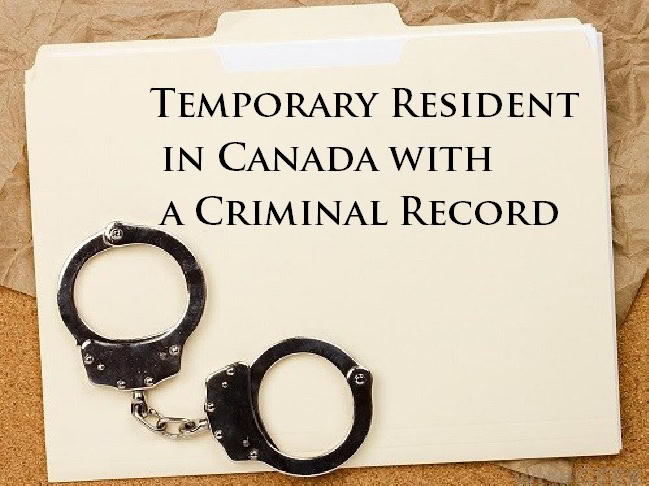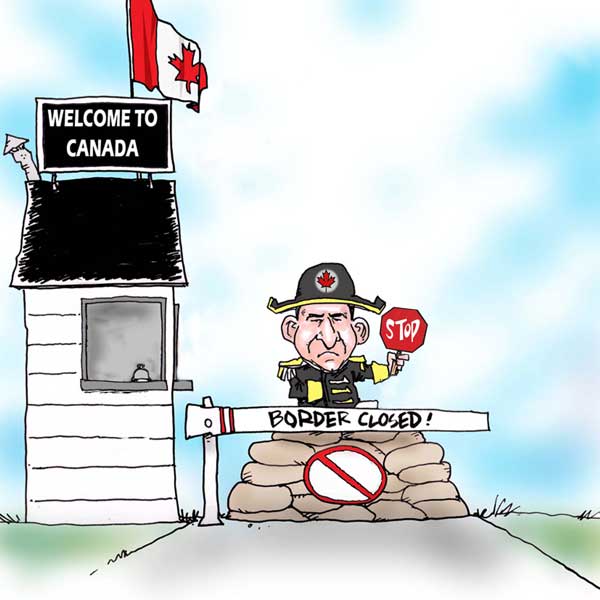TRP versus Criminal Rehabilitation Application
What is the difference between Criminal Rehabilitation and a Temporary Resident Permit?
If you are planning a trip to Canada but you have a criminal record, you may be denied entry if you are considered ‘inadmissible’ by the Customs Officer. Canada has very strict regulations regarding entry to Canada when it comes to having a criminal record, so if you have ever committed or been convicted of either a minor or serious crime, you will have to obtain either a Temporary Resident Permit, or overcome criminal inadmissibility through Criminal Rehabilitation.
Criminal Rehabilitation and a Temporary Resident Permit are very different application processes, with different eligibility requirements and processing times; therefore it is important to understand the difference, as well as which option is the best solution for you.
Criminal Rehabilitation
Criminal Rehabilitation sounds like a very intimidating process for serious offenders, but in terms of Canadian Immigration, it refers to the process of your criminal background being permanently pardoned for the purpose of entering Canada. Individuals who have been granted Criminal Rehabilitation are usually people who have stable lifestyles with a low likelihood to re-offend. If your Criminal Rehabilitation application is approved, it means you will never again be refused entry to Canada based on your previous criminal history. There are 2 types of Criminal Rehabilitation, each with a different set of qualifications:
Deemed Criminally Rehabilitated
This applies to any individual who has either been convicted of, or has committed a crime outside of Canada, that had the crime taken place inside of Canada, would have a maximum punishable sentence of 10 years of less. If this applies to you, and your sentence or commission has been completed 10 or more years ago, you qualify to be considered ‘deemed rehabilitated’, and will therefore be considered admissible to Canada.
If you have been convicted of, or have committed a crime outside of Canada, that had the crime taken place in Canada would have a punishable sentence of 10 years or more, you are not eligible to be considered ‘deemed rehabilitated’. Also keep in mind that in order to be eligible for ‘deemed rehabilitated’ status, you cannot have reoffended, or committed or been convicted of any other indictable offence.
If you have been convicted for 2 or more crimes outside of Canada, that had they taken place inside Canada would constitute summary conviction offenses then you are considered ‘deemed rehabilitated’ at least 5 years after the sentence and/or sentences were completed.
How to calculate the 10-year waiting period for Criminal Rehabilitation:
Sentence: count 10 years after the date the sentence was complete
Imprisonment & Parole: count 10 years after the completion of the parole
Sentence & probation: count 10 years after the completion of the probationary period
Individual Rehabilitation
This applies to any individual who has either committed, or been convicted of a crime outside Canada, that had that same crime taken place within Canada, would have been punishable by either sentences of 10 years or less, as well as 10 years or more. If your application for Individual Rehabilitation is approved, your previous criminal history will never again be the reason you are refused entry into Canada.
If your crime would be punishable in Canada with a maximum sentence of 10 years or less, but it has not been 10 years since the completion of your sentence, applying for rehabilitation is the only way to be deemed ‘rehabilitated’, and therefore admissible to Canada.
Similarly, if you have committed or been convicted of a crime that qualifies under Canadian sentencing of 10 or more years, applying for individual rehabilitation is the only way to be deemed ‘rehabilitated’, and therefore admissible to Canada.
In both cases, it must be at least 5 years after the completion of your sentence or commission in order to be eligible to apply for Individual Rehabilitation.
How to calculate the 5-year waiting period for Individual Rehabilitation:
Sentence: count 5 years after the date the sentence was complete
Imprisonment & Parole: count 5 years after the completion of the parole
Sentence & probation: count 5 years after the completion of the probation is complete
Temporary Resident Permit
If you do not qualify for Criminal Rehabilitation because it has not been at least 5 years since the completion of your sentence, or if you have to make an unexpected trip to Canada and do not have time to wait for a Criminal Rehabilitation application to be processed, a Temporary Resident Permit may be the right solution for you.
A Temporary Resident Permit allows an individual entry into Canada for a predetermined amount of time if they have a valid reason to visit or enter Canada, and are otherwise inadmissible. A Temporary Resident Permit (TRP) can either be applied for in advance through a Canadian Consulate, or ‘same day’ at the Canadian border or port of entry. Applying directly at the border may be your only option if the trip is an emergency (such as a death in the family) or on short notice (such as a business meeting), but keep in mind you are not guaranteed to have a TRP approved, and may be refused entry to Canada.
The Immigration Officer processing your TRP application will determine if your reason for visiting Canada outweighs the ‘risk’ of you possibly reoffending. Therefore it is key to highlight the stability of your life since the completion of your sentence, your remorse for previous offences, as well as the fact that you are a low risk reoffender.
A Temporary Resident Permit is a temporary document that grants admissibility to Canada, and it should be noted that it is not a permanent pardon. The duration will be determined by the Officer processing your TRP, which could be anywhere from 1 day to 3 years. This means you will be considered ‘admissible’ to Canada for the duration of your TRP, but will have to either reapply for a new TRP once your current one expires, or apply for Criminal Rehabilitation if you are eligible, otherwise you will once again be considered ‘inadmissible’ to Canada. Having been approved for one Temporary Resident Permit does not automatically mean you will be approved for a second one, so ensure you have the assistance of an Immigration firm who specializes in TRP applications to increase your chances of approval.
Contact Akrami and Associates
If you have a criminal history but would like to visit Canada, or if you have already been refused entry to Canada or told you are ‘inadmissible’, contact us today at 416-477-2545 for a consultation regarding the best strategy regarding your entry to Canada. Akrami & Associates specializes in inadmissibility cases, and has a successful track record with the hundreds of Temporary Resident Permits and Criminal Rehabilitation applications we have submitted on behalf of our clients.
With Akrami & Associates, there is always a way!
Latest Immigrations News

November 18, 2024
What is Temporary Resident Permit
What is Temporary Resident Permit A Temporary Resident Permit (TRP) is a unique pathway allowing individuals who would otherwise be inadmissible to enter or remain in Canada temporarily. This special permit is issued at the discretion of Canadian immigration authorities to those who have compelling reasons for entering [...]

October 8, 2024
Temporary Resident Permit (TRP) and Criminal Rehabilitation
Canada’s immigration laws can be pretty strict, especially when it comes to people with past criminal convictions. However, there are options available for individuals looking to enter Canada despite those issues: the Temporary Resident Permit (TRP) and Criminal Rehabilitation. Both of these processes are designed to help people [...]

July 4, 2024
Denied Entry to Canada for a DUI
Denied Entry to Canada for a DUI? Canada has strict immigration and border security policies, which include rigorous checks on individuals with criminal records. One common reason for being denied entry into Canada is a past conviction for driving under the influence (DUI). Have you been denied entry [...]

Book a Conslutation
One of our Representatives will
assist you with your matter. Book Now!
Click here

Call us for
more Information
+1-416-477-2545
Toll Free: 1-877-820-7121
Click here

Write Us (Online Form)
Complete our form and one of our
Representatives will contact you.
Click here
Subscribe To Our Newsletter





